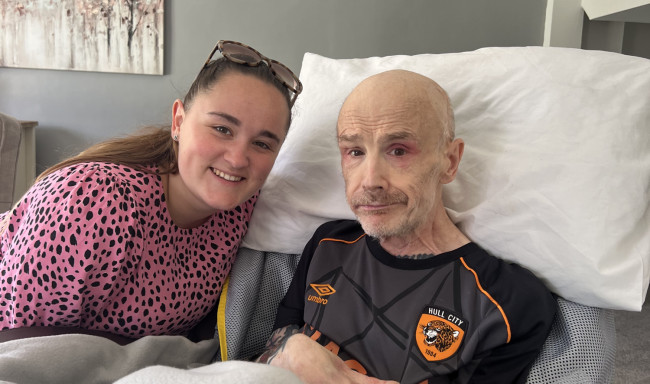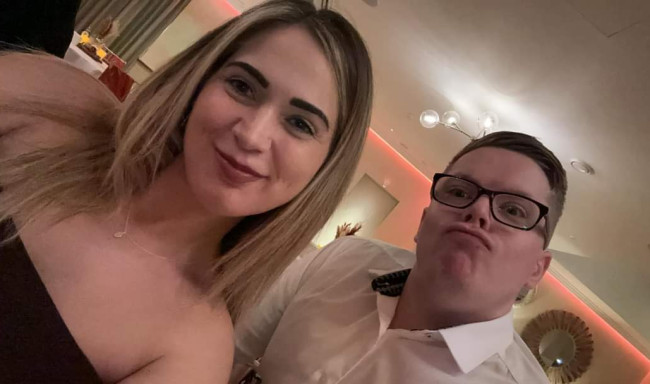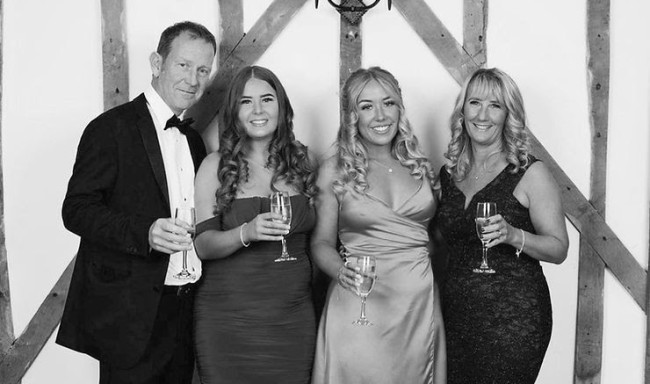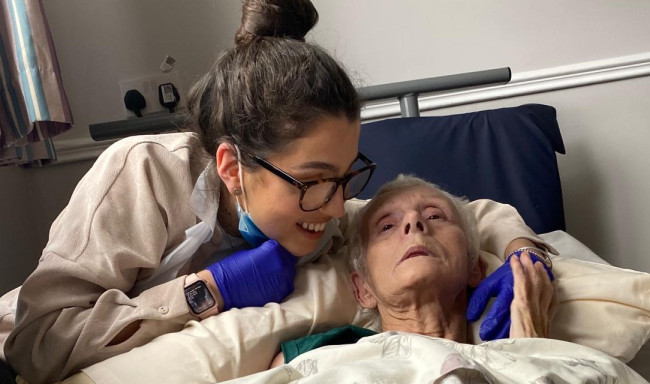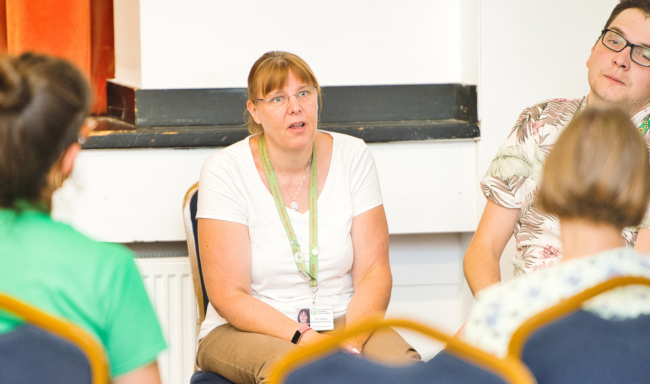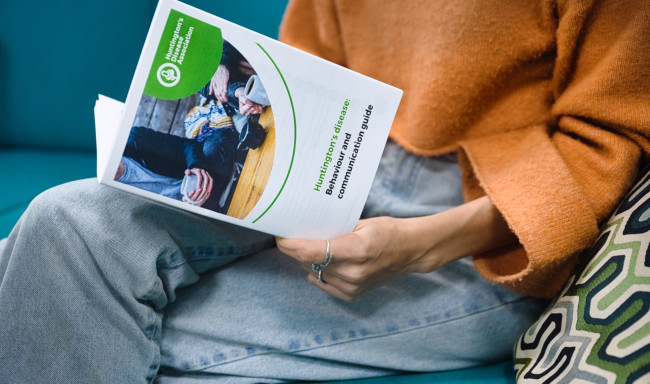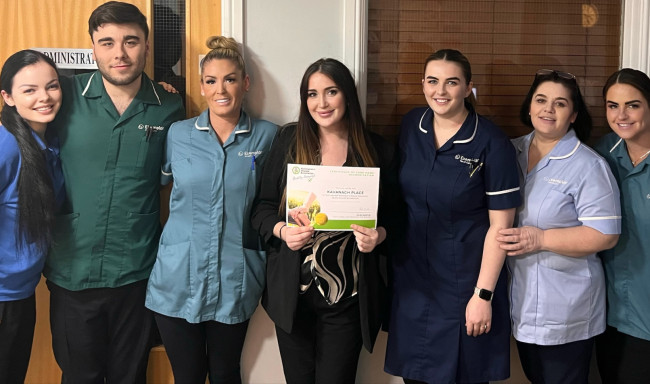We spoke to a member of the community who has been impacted by mental health issues due to living at risk. They wish to remain anonymous but hope that their story may help others in a similar situation.
"As this year's Huntington’s disease awareness month is focusing on the mental health impacts of Huntington’s disease, I want to share my story. Whilst I do not have a lived experience of someone being symptomatic with Huntington’s in my family as of yet, Huntington’s has still had a huge impact on my mental health."
I am a young adult in my twenties at 25% risk of having inherited Huntington’s. What this means is that a grandparent in my family was diagnosed with Huntington’s and one of my parents is at 50/50 risk. My at-risk parent has decided not to undergo predictive testing and is not symptomatic at present. This means that we do not know if my parent has inherited Huntington’s and therefore, I am classed as being at half of my parent's risk. If my parent were to become diagnosed then my risk would jump up to 50%. My grandparent who had Huntington’s passed away before I was born meaning that so far I have not lived through a family member having Huntington’s.
I was at University when I found out about my own risk of Huntington’s. I was studying for a professional health care degree where Huntington’s was also mentioned. This lead me to further explore what this meant knowing that there was a family history of the disease in my own family. It was a huge shock and something that I googled a lot but did not find helpful or factual resources. I can still picture the videos of people in the later stages of Huntington’s which was scary when I didn't actually understand the disease. Unfortunately, I didn't receive support from the university when I explained my risk status and this began to impact my mental health.
I experienced a low mood for about three months and after speaking to one of my parents I tried to take on their attitude of trying to not think about it until someone showed symptoms. Due to how scared and confused I was, I didn’t reach out for support from the charity. For a while, I repressed that Huntington’s existed.
"Fast forward about three years and I had a bad episode of health anxiety in early 2021. Huntington’s disease was back on my mind and in full force."
At the time I didn’t have insight into the fact that I had health anxiety, also known as hypochondria. Everyone around me would tell me to stop worrying and symptom searching about my/their health but I would become angry. I felt like no one else cared about their health and that’d we’d all become seriously unwell. It was my health anxiety that brought Huntington’s back to my mind as I panicked that family members were showing symptoms and it was my family history of Huntington’s that was one of the triggers of my health anxiety. It was at this point that I reached out to the Huntington’s Disease Association and was put in contact with James the Youth Engagement Coordinator.
"Over the last year, my anxiety skyrocketed and the possibility of having Huntington’s was on my mind every single day. I would continuously worry about other family members which also led to me feeling depressed, struggling to concentrate at work, and struggling with motivation to do things in my personal life. I was unable to disassociate myself from Huntington’s disease."
Over the last 15 months I’ve been formally diagnosed with health anxiety and I have had telephone counselling, Eye Movement Desensitization and Reprocessing (EMDR) therapy, and Cognitive Behavioural Therapy (CBT), and also started anti-anxiety medication.
"I found that unfortunately whilst my therapist was good at helping me implement strategies for my health anxiety specifically, they did not understand Huntington’s and made unhelpful/ignorant comments. Luckily, this is where the amazing support from the Huntington’s Disease Association and my local NHS clinical genetics team have come in. I’ve received incredible support from both services and have been made to feel empowered and to make my own choices in regards to my future."
Testing is an option that I’m considering as I struggle with living with feelings of uncertainty. It is to help me make choices in the future such as having children or to make other life choices. However, being at 25% risk makes it ethically and morally difficult to make decisions if I test positive. I would then know my parent's Huntington’s status when they don’t want to know, which is something I completely respect.
Right now I am feeling the happiest and most in control of my life than I have done in a while. Despite the chance of Huntington’s still being there in the future for several family members including myself, through support, therapy, medication, a few close friends, clinical genetics and James (HDYES), my anxiety is managed and I feel as though I am able to make any choices relating to Huntington’s when I am ready with the support of people around me. I can still have bad days and of course still worry about what might come but I now have the support and strategies to manage it, and following my latest clinical genetics appointment with a psychiatrist I have decided to try and focus on living and finding enjoyment in life after a year of high stress and anxiety. I no longer have to repress Huntington’s but can live alongside it.
"I wanted to write this to emphasise that Huntington’s does not only impact people who are diagnosed and that someone doesn’t have to have lived experience of Huntington’s to be impacted by it."
If anyone is reading this is at 25% risk please know that whatever your feelings are towards Huntington’s and if you’re considering testing that your feelings are valid and that it’s okay for you to explore what it all means for you too.
Finally, I just want to finish with a huge thank you to James who supports young people impacted by Huntington’s and does the most amazing job. I have had a lot of professionals involved in my care, but James has been undoubtedly the person I trust the most and I wouldn’t be where I am now without his support and advocacy. Using his own words, I want this to be a reminder for people, as not only has James reminded me of this several times but has helped me to believe that “there is more to life than Huntington’s disease.
If you are affected by Huntington’s disease and are in need of support or advice, please contact us on 0151 331 5444 or email info@hda.org.uk. Our dedicated phone line is open 9 am – 5 pm, Monday – Friday with Specialist Advisers waiting at the other end to offer you support. If you are under 25 years old you can access our Huntington's Disease Youth Engagement Service.

